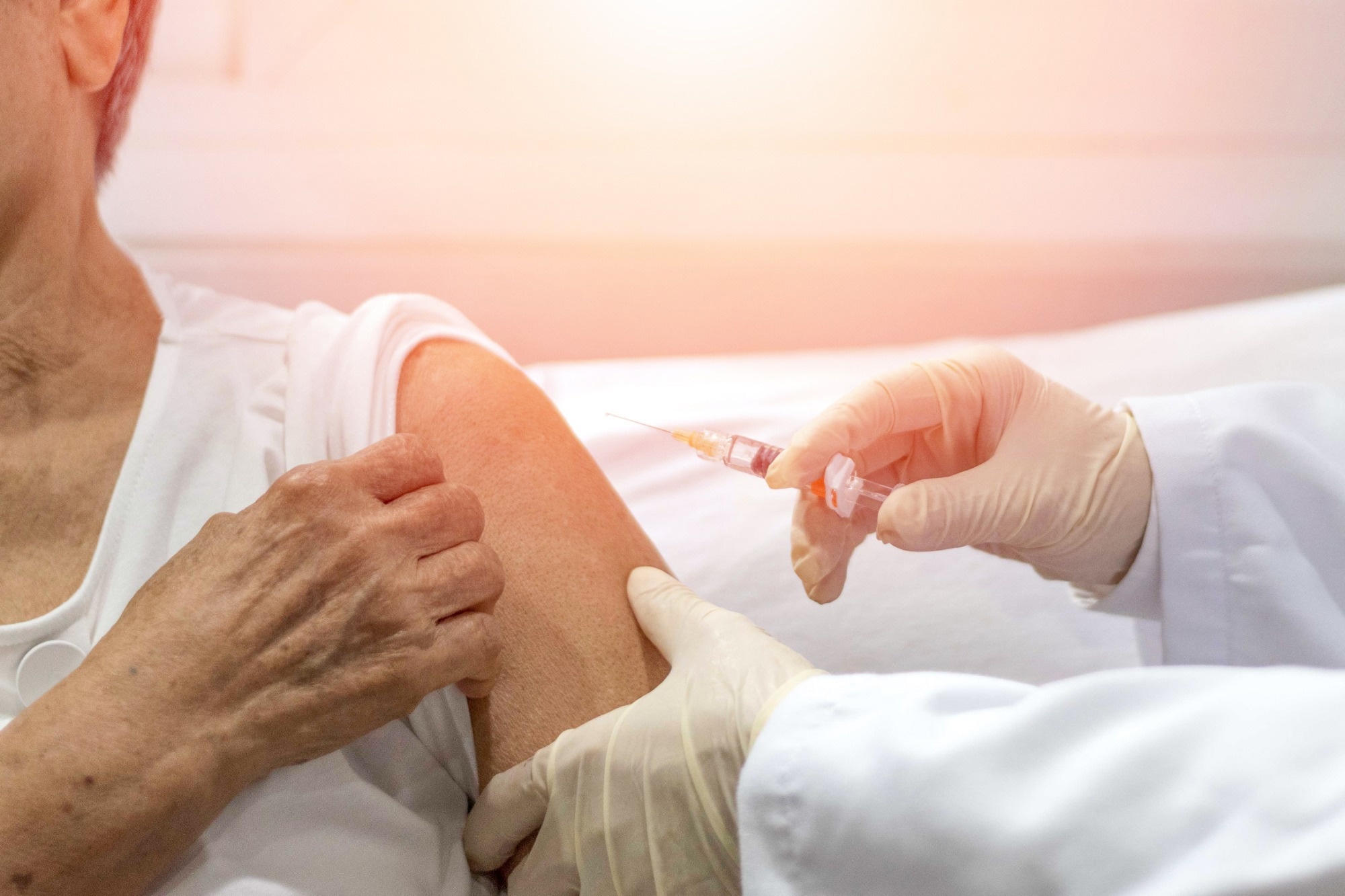Notably, one study that compared people below and above the eligibility age cut-off reported that live shingles vaccine might be protective against dementia. However, the effect was limited to live vaccines and only observed in females. The live vaccine has been discontinued in the United States (US), with several countries following suit in favor of the recombinant vaccine. Whether recombinant shingles vaccination protects against dementia is unknown.
 Brief Communication: The recombinant shingles vaccine is associated with lower risk of dementia. Image Credit: BlurryMe / Shutterstock
Brief Communication: The recombinant shingles vaccine is associated with lower risk of dementia. Image Credit: BlurryMe / Shutterstock
About the study
The present study examined the associations between recombinant shingle vaccination and subsequent dementia incidence. They leveraged a natural opportunity created by the live shingles vaccine's disuse and the recombinant vaccine's rapid uptake after October 2017.
Electronic health record data were used from a network covering 62 healthcare organizations comprising over 100 million patients. Demographic, diagnostic, and medication data were available. The primary cohort included all patients receiving their first shingles vaccine at ≥ 65 years between November 2017 and October 2020. The comparator cohort included those vaccinated between October 2014 and September 2017.
Patients were excluded if they were diagnosed with vascular dementia, unspecified dementia, Parkinson's disease, or other neurodegenerative disease before or (≤ 1 month) after vaccination. Cohorts were matched for covariates, including sociodemographics, influenza vaccination history, comorbidities, and herpes infection history, using propensity-score matching. The primary outcome was the first dementia diagnosis from three months to six years after vaccination.
Secondary outcomes were all-cause mortality, herpes zoster infection, a composite of death or dementia, and each dementia subcategory. Outcome incidence was computed using the Kaplan-Meier estimator. The restricted mean time lost (RMTL) ratio was calculated, and the absolute differences in RMTL were translated into additional days lived (dementia) diagnosis-free among those affected subsequently.
A permutation test evaluated moderation by sex. Various secondary analyses were performed after 1) stratification by sex, 2) limiting exposure windows to six months before and after October 2017, 3) restricting cohorts to recipients of the predominant vaccine during each exposure window, 4) excluding those who received both vaccines, 5) restricting the follow-up to 18 months, and 6) adjusting for socioeconomic deprivation.
Findings
Overall, the primary and comparator cohorts comprised 103,837 individuals each. They were followed up for a median of 4.15 and 6 years, respectively. Most (95%) of the primary cohort received the recombinant vaccine. Likewise, most individuals (98%) in the comparator cohort were recipients of the live vaccine.
The primary cohort had a lower risk of dementia over the next six years than the comparator cohort, translating into 164 additional days (or 17% more time) lived dementia diagnosis-free among those affected subsequently. Individuals vaccinated after October 2017 were less likely to have herpes zoster infection over six years post-vaccination.
Results were significant for the composite outcome, and there was no difference in all-cause mortality. Moreover, results were similar after exposure windows were limited to six months, cohorts were restricted to those receiving the predominant vaccine, recipients of both vaccines were excluded, or adjusting for socioeconomic deprivation.
The association between recombinant vaccine and dementia was evident in males and females, albeit the effect was more significant in females. Likewise, the association with herpes zoster infection was found in both sexes; there was no moderation by sex. In addition, both vaccines were associated with a reduced risk of dementia than tetanus-diphtheria-pertussis and influenza vaccines.
Conclusions
The recombinant shingles vaccine was associated with a decreased risk of dementia over the next six years compared to a live shingles vaccine. The protective effect was higher in females. Besides, 17% more time lived diagnosis-free is clinically meaningful. Overall, the findings provide a rationale for conducting a randomized controlled trial to corroborate the results and inform the cost-effectiveness of the recombinant vaccine.